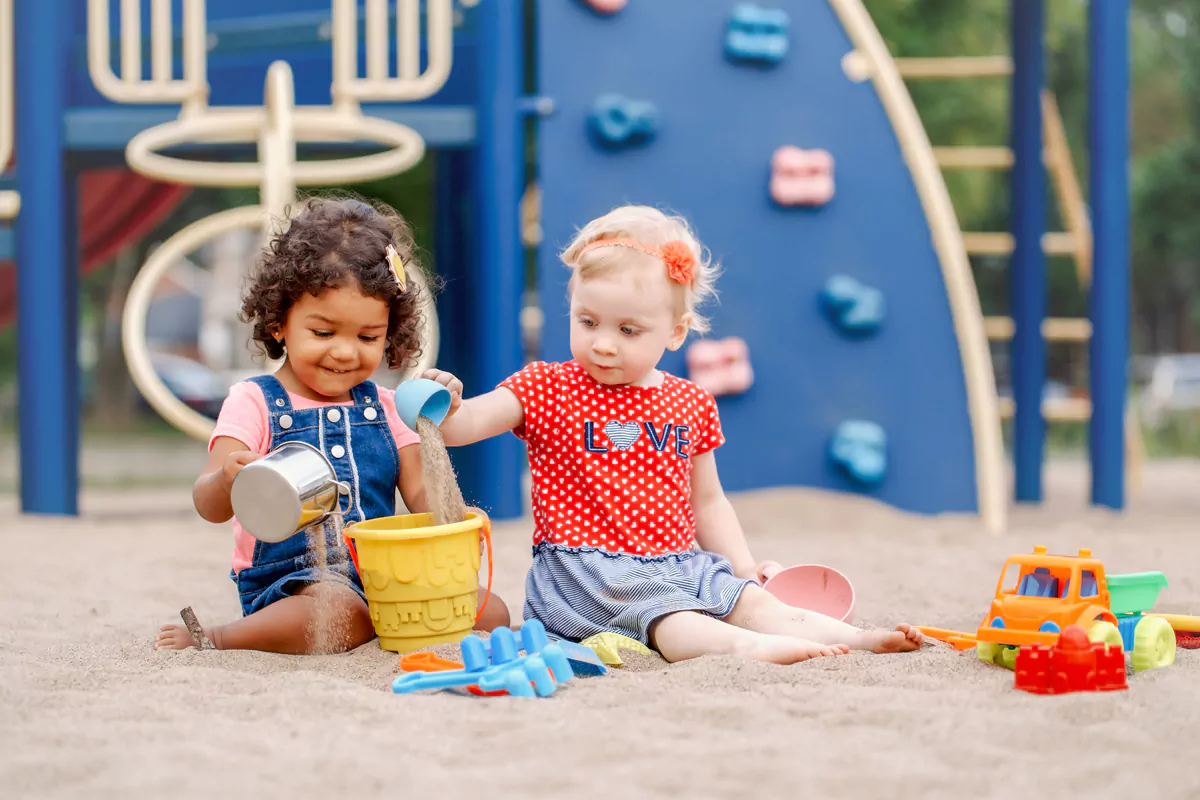How social skills help toddlers build healthy relationships
Healthy relationships for kids are an integral part of a toddler’s development as they shape their social and emotional well-being. Healthy relationships have a positive impact on toddlers, making them feel secure, loved, and supported. As such, it’s crucial for children to learn about healthy relationships early on to ensure they establish healthy habits and boundaries that will shape their future relationships.
It is worth noting that babies are born with an innate desire to relate to and connect with others. As they grow, they acquire the necessary social skills to form strong and healthy emotional relationships throughout their lives. So, by nurturing their emotional connections with others from a young age, you can help set them up for success in their relationships and interactions with others.
As a newborn is fed by her mother, she gazes into her mother’s eyes and recognizes her as a caring and loving person. The baby quickly calms down when her mother holds her close, reinforcing her sense of security and trust. Through these interactions, the baby learns that she is loved and can rely on others to care for her.
A 6-month-old baby laughs hysterically as her father plays a game of peek-a-boo, covering and uncovering his face with a napkin. When the father puts the napkin down, the baby expresses her desire to continue the game by making sounds and gestures. Through this playful activity, the baby learns that spending time with loved ones is fun and enjoyable, creating positive and meaningful connections.
A 20-month-old toddler wants to cut his own fruit for a snack but is told “no” by her grandmother. The toddler becomes upset and starts to cry. Her grandmother responds by giving her a blunt butter knife and guiding her hand to help her cut a watermelon. By meeting her needs and providing her with a sense of control, the toddler learns that her interests and needs are important and that she can trust others to understand her.
A 2 ½-year-old girl witnesses her brother falling off his bicycle and starting to cry. She rushes to his side and begins to rub his back, remembering the comforting actions of her mother. Through this empathetic response, the toddler learns how to understand and connect with the feelings and experiences of others, fostering a sense of compassion and caring.
To help your child develop healthy emotional relationships with the people in her life, it is important to understand your role in her overall development. Because, as your toddler grows and interacts with others, she discovers who she really is and learns to empathize and connect with those around her.
You as a parent can help your toddler establish strong emotional bonds with others based on trust and intimacy by providing a nurturing and supportive environment. By feeling understood and valued, she will develop a sense of openness and enthusiasm towards the world. This, in turn, helps her become a responsive and caring individual well-versed in forming healthy emotional relationships.
Make time for your child every day
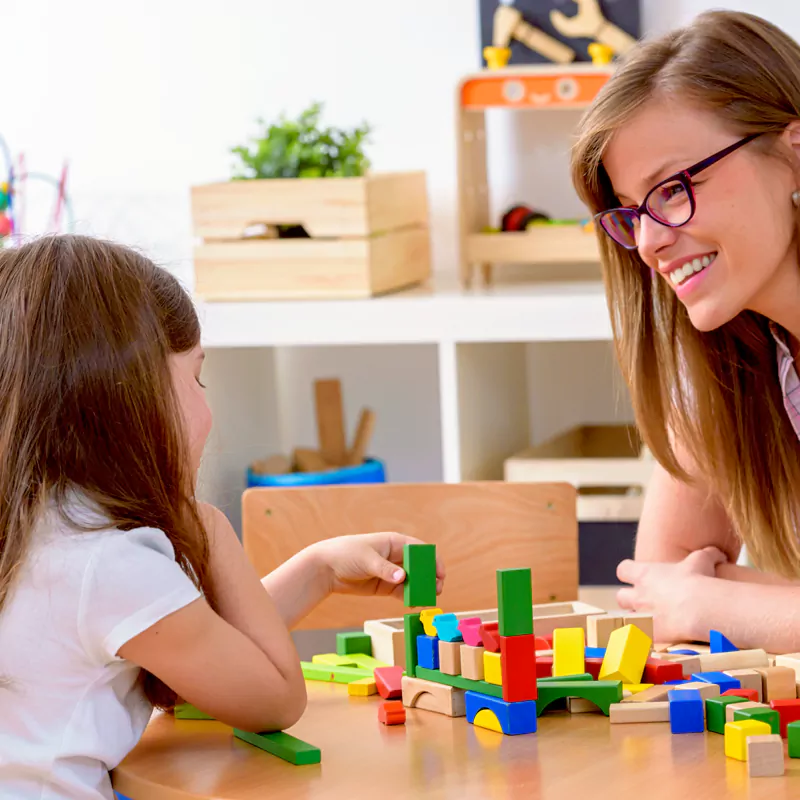
When it comes to playtime, let the little people with big emotions take the lead by asking them what activity they would like to engage in. Offer them several options, and allow them to make the final decision. Letting your toddler take the lead not only helps your child develop decision-making skills but also gives her a sense of autonomy and control.
To ensure that your child gets your undivided attention during playtime, eliminate distractions such as phones, TV, or other electronic devices. Set aside a specific time each day for special playtime, and make it a routine so that your child looks forward to it. This will surely play a critical role in developing positive relationships with peers.
While playing with your child, focus on the activity at hand and avoid multitasking. Use this time to connect with your child, and show her that she is important and valued. Letting your toddler take the lead and set the pace and direction of the activity, helps your child develop her creativity and imagination.
When you have to attend to daily chores, involve your child by assigning simple tasks or “jobs” that she can handle. This not only keeps her connected to you but also helps her develop a sense of responsibility and independence.
Even when you’re busy with daily chores, involve your toddler by narrating what you’re doing or just keep a dialogue going. This helps her develop language skills and also helps her feel connected to you.
When doing daily chores, offer your baby interesting objects related to the activity you’re engaged in. For example, give her a plastic spoon to play with while you’re cooking. This keeps her engaged and entertained and also helps her learn about the world around her.
By implementing these simple tips, you can create a special bond with your child, develop her skills, and make playtime a fun and engaging experience for both of you. Children are little people with big emotions.
Show you are interested in her activities
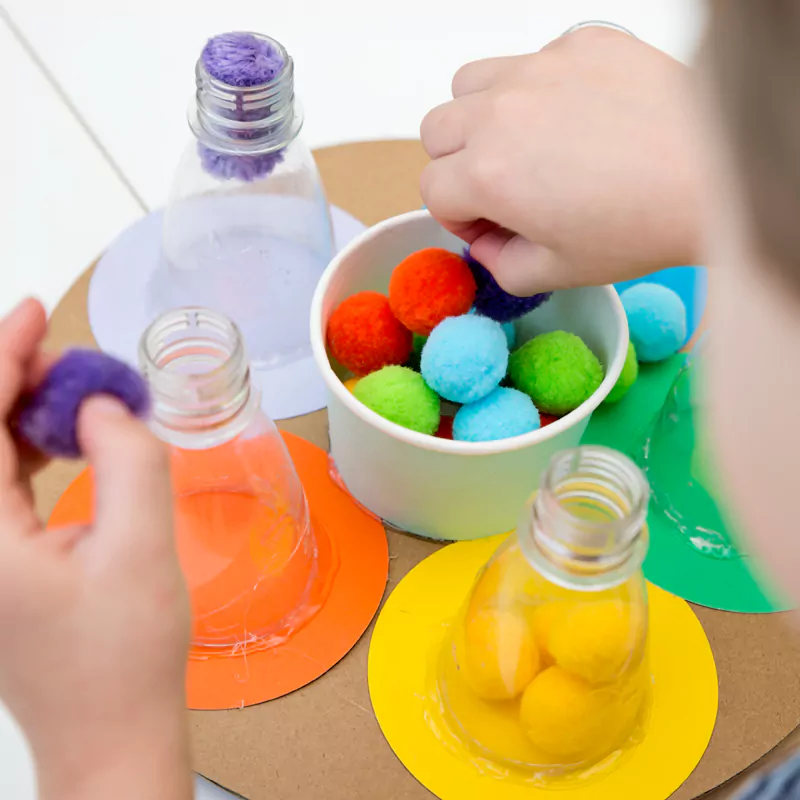
You as a parent play an essential role in shaping your child’s development, and one of the most important ways to support her growth is by showing a sincere interest in her activities. When parents show interest in their child’s activities, they provide a sense of validation and acknowledgement, which can boost their child’s self-esteem and confidence and helps your toddler in developing positive relationships.
One effective way to demonstrate your interest is to actively observe and engage with your child’s activity by teaching social skills. For example, if your child is drawing a picture, you can observe and comment on the use of colours and shapes, praising her creativity and effort. This type of positive reinforcement reinforces your toddler’s desire to explore and learn new things.
Apart from this, you can take a more active role by teaching social skills to your child. This type of interaction promotes collaboration and cooperation and helps to strengthen the bond between you and your child. For instance, if your child is playing with blocks, ask if you can join in and suggest building something together. This provides an opportunity for your child to learn valuable social skills such as turn-taking, cooperation, and problem-solving.
Through back-and-forth play, your toddler will learn to communicate, empathize, and understand the perspectives of others. These skills are fundamental to developing positive relationships and are essential for success when she joins a school later in her life.
Demonstrating a sincere interest in your child’s activities will have a significant impact on your toddler’s development. By observing and engaging in teaching social skills, you can promote creativity, self-esteem, and social-emotional development. So take the time to show interest and engage with your child, as you will be laying the foundation for a happy, healthy, and successful future.
Encourage your toddler to express her feelings
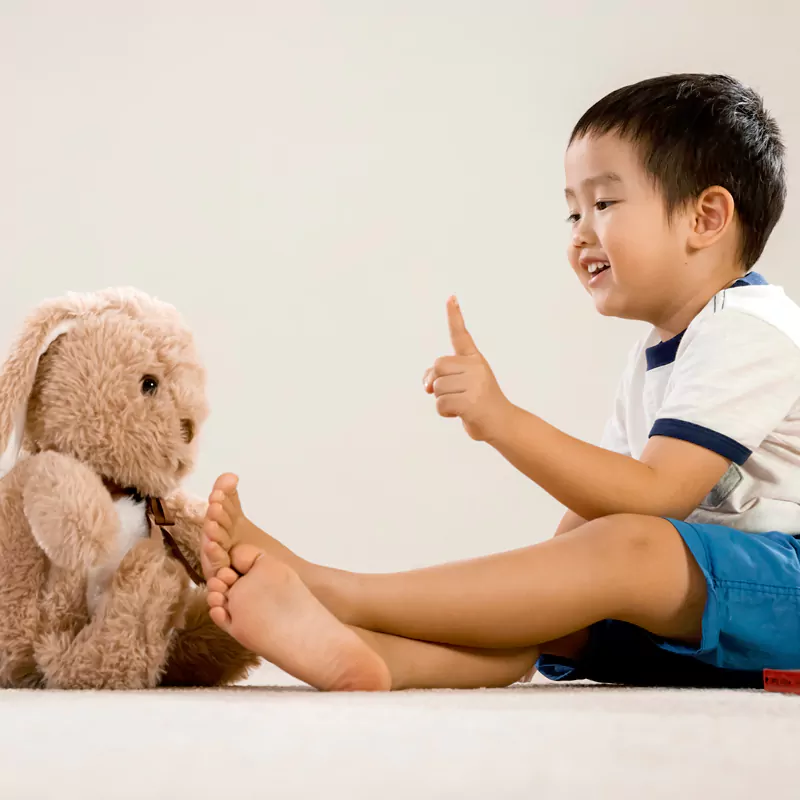
Developing positive relationships with peers is essential for your toddler. One of the key factors in making this happen is emotional intelligence, which is the ability to recognize, understand, and manage her own emotions, as well as the emotions of others. Teaching your toddler appropriate ways to express and manage her feelings is a critical step in helping her develop emotional intelligence and build positive relationships with others.
One way to teach your toddler how to express her emotions is by modelling appropriate behaviour. Children often learn by imitating the behaviour of those around them, so if parents can demonstrate healthy ways of dealing with their own feelings, children are more likely to adopt those behaviours.
For example, parents can label their own emotions and explain why they are feeling a certain way. This not only helps children learn to recognize and understand different emotions but also shows them that it is okay to have feelings and that it is important to express them.
It is also important to teach your toddler different ways to cope with her emotions. This can include physical activities like running, and drawing, or more calming activities like deep breathing or meditation. By providing your child with a range of coping mechanisms, she can learn to manage her emotions in a healthy way and avoid harmful behaviours like reacting in negative ways or bottling up her feelings.
In addition to teaching your toddler how to manage her own emotions, it is important to help her understand the emotions of others. This can include teaching her how to recognize different facial expressions and body language, as well as how to respond to others in a kind and empathetic way. By understanding the feelings of others, your child can develop better communication skills and build stronger relationships with her peers and family members.
Teaching your child how she can express and manage her emotions is essential for building positive, healthy relationships. By modelling healthy behaviour and providing your child with a range of coping mechanisms, you can help her develop emotional intelligence and the skills she needs to build strong, lasting relationships with her peers.
Always respect your child’s feelings
Respecting your child’s feelings is an important aspect of raising emotionally healthy and confident children. When you show your child that you value and validate their emotions, you are teaching her that her feelings matter and that she has the right to express them.
By creating a safe and nurturing environment where your child feels comfortable sharing her emotions, you can help her develop a sense of trust in herself and others. This sense of trust is crucial when she encounters difficult situations or faces challenging decisions later in life.
When you respect your child’s feelings, you are also helping her develop important emotional intelligence skills. By acknowledging her emotions and allowing her to express herself freely, you are teaching her how to identify and manage her feelings in healthy ways. This can help your child build resilience and cope with stress as she grows older.
Another important benefit of respecting your child’s feelings is that it can promote empathy and respect for others. When your child sees that you value her emotions, she will learn that everyone has feelings that should be acknowledged and respected. This can help your child develop strong relationships and communication skills.
Learn to accept your child’s feelings without judgment or ridicule, because you then create a supportive and non-threatening environment that encourages openness and honesty. This helps your child feel comfortable coming to you with her concerns and problems as she grows older, which can further strengthen your relationship and allow you to guide your child through life’s challenges.
Respecting your child’s feelings is an important part of parenting that will have a positive impact on her emotional well-being, relationships, and future success. By showing empathy, acceptance, and understanding towards your child’s emotions, you can help her develop into a confident and emotionally resilient individual.
Play games to explore hidden feelings

Using puppets is an excellent way to help your toddler to express her emotions and cope with typical frustrations or fears. To expand on this activity, you can create different puppet characters that represent specific emotions or feelings. For example, a happy puppet, a sad puppet, an angry puppet, and a scared puppet. This will give your child a visual representation of the different emotions she might experience.
You can also create drawings or hats that represent different emotions. This can help children identify and communicate how they are feeling. You can help by asking your child to choose a hat or drawing that represents how she feels and talk about the emotion she is having.
Another way to encourage emotional expression is by reading books with your toddler that deal with emotions and feelings. You can discuss the characters’ emotions and how they relate to the child’s own experiences. This can help children understand that emotions are a normal part of life and that it’s okay to express them.
Observe your child’s play to gain insight into her thoughts and feelings. By watching how a child plays with their toys, parents can get a glimpse into what might be on their mind. For example, if your toddler is playing with dolls and pretending that one of them is going away, it might indicate that she is worried about separation.
By using puppets, drawings, books, and observation are all effective ways to help children express their emotions and cope with typical frustrations or fears. By engaging in these activities, parents can create a safe and supportive environment where children can learn to manage their emotions in a healthy way.
Create opportunities to develop relationships with peers
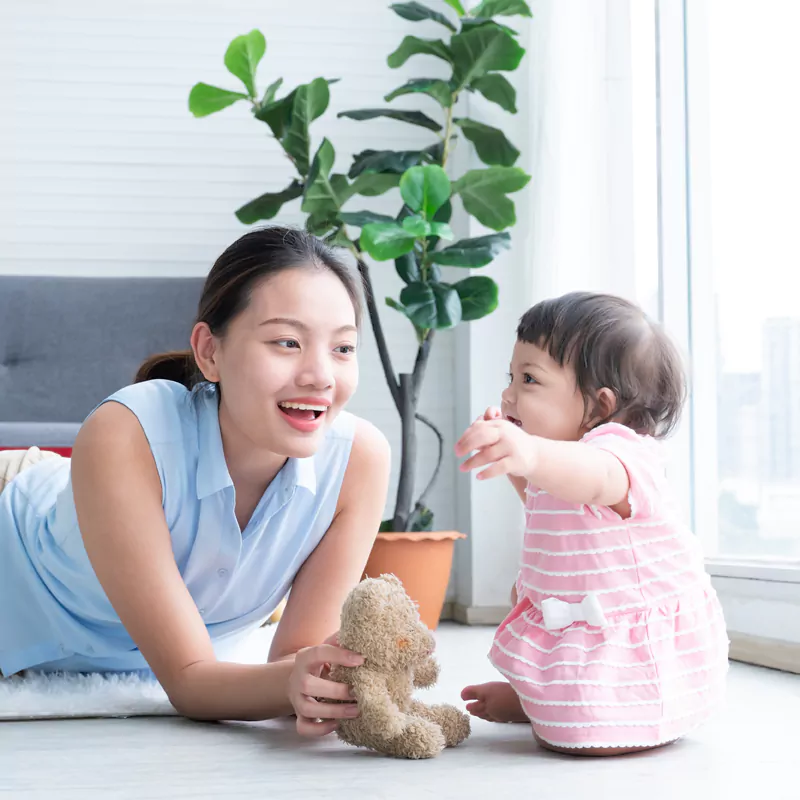
Playing with peers is an essential part of your child’s development, allowing her to learn important social skills that will serve her well throughout her life. Sharing, taking turns, resolving conflicts, and forming friendships are all vital skills that your child needs to learn, and playing together with other children her age provides an excellent opportunity to practice them.
Make sure that you are present during play-dates to ensure that children have guidance and support as they learn and practice their new skills. It’s also important to keep playdates short for young children, as their attention spans are limited. For toddlers, 45 minutes to an hour is about the right length of time for a playdate.
If your child is a little older, you can use playtime with peers to help your toddler build relationship skills. You can suggest that everyone takes turns to ask for assistance or for answers to questions. This will encourage young children to work in groups or teams, helps them to see other’s points of view and foster empathy.
When children are playing together, you can use this opportunity to connect with other parents. It’s important for you to build relationships with other families and to model positive social interactions for their child’s sake.
Playing with peers is a crucial aspect of your toddler’s development, providing opportunities to learn essential social skills such as sharing, taking turns, resolving conflicts, and forming friendships. It is best to be present during playdates to guide and support not only your toddler but also other children. Encouraging them to use this opportunity to foster relationship-building skills and to connect with other adults.
Limit screen time
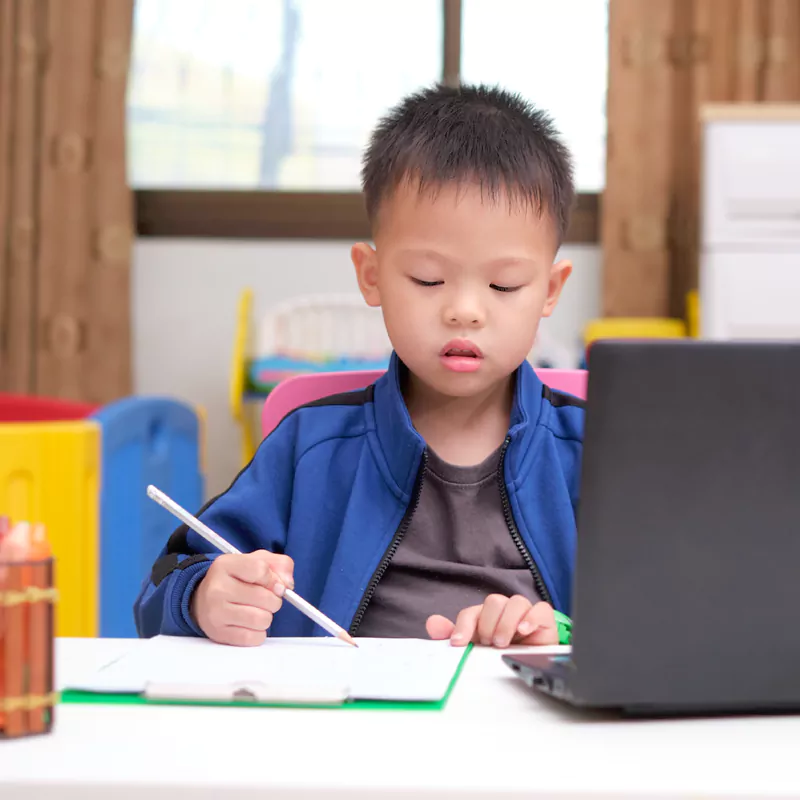
Playing with peers is an essential part of your child’s development, allowing her to learn important social skills that will serve her well throughout her life. Sharing, taking turns, resolving conflicts, and forming friendships are all vital skills that your child needs to learn, and playing together with other children her age provides an excellent opportunity to practice them.
Make sure that you are present during play-dates to ensure that children have guidance and support as they learn and practice their new skills. It’s also important to keep playdates short for young children, as their attention spans are limited. For toddlers, 45 minutes to an hour is about the right length of time for a playdate.
If your child is a little older, you can use playtime with peers to help your toddler build relationship skills. You can suggest that everyone takes turns to ask for assistance or for answers to questions. This will encourage young children to work in groups or teams, helps them to see other’s points of view and foster empathy.
When children are playing together, you can use this opportunity to connect with other parents. It’s important for you to build relationships with other families and to model positive social interactions for their child’s sake.
Playing with peers is a crucial aspect of your toddler’s development, providing opportunities to learn essential social skills such as sharing, taking turns, resolving conflicts, and forming friendships. It is best to be present during playdates to guide and support not only your toddler but also other children. Encouraging them to use this opportunity to foster relationship-building skills and to connect with other adults.
About My Gym
My Gym involves children in activities that promote development of social skills through dynamic games, physical activity and movement that help in building neural networks in the brain. By customizing activities to promote social and emotional development, My Gym makes it easier for children to acquire critical social and intellectual skills that enable them to navigate complex social situations, and nurture emotional development.
Please visit any of our centres to learn more about how My Gym supports “whole-child development” through bespoke physical activities. Choose a day when you will be relatively free and come over with your child in tow. Your child could be an infant (as young as 6 months), a toddler or a preschooler, age is not a bar for enrolling.
My Gym has perfected activities to promote social and emotional development that nurtures and strengthens confidence levels among children. My Gym also runs programs that help lay a firm foundation for personal, academic and future growth by involving children in age-appropriate, structured and unstructured physical activities and developing thinking and problem-solving skills.
Please note: My Gym classrooms are thoroughly sanitized every day — the tables, the chairs, the children’s activity stations and everything else the child might touch is made safe and clean. Please wear a mask, wash your hands frequently, and practice social distancing.



